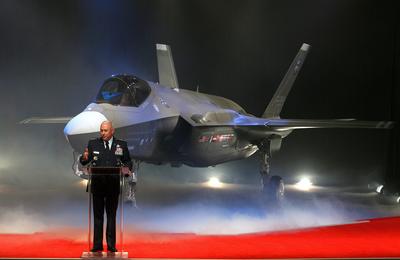Recently, Minister for Defence Stephen Smith told Parliament that repeated delays and escalating costs were threatening government-imposed delivery and price limits. He indicated that Australia would need to determine the scale of its commitments by 2013 in order to prevent a ‘looming air combat gap in the country’s military’, as reported by Reuters.
While experts contest the extent to which the Australian F-35 program will be overhauled, Carl Ungerer, presently at Georgetown University, believes that Smith’s remarks indicate changes ahead: ‘One needs to read between the lines of Smith’s speech. The JSF will be modified. They are looking for options. Australia will buy the F-35 but not all 100 planes’.
Defence Minister Smith has hinted at the possibility of buying more Boeing F/A-18 Super Hornets at the expense of some of its F-35 commitments. Alan Stephens, at the Australian Defence Force Academy in Canberra, is not surprised that Smith is looking at this option: ‘The Super Hornets have been a considerable success with the Royal Australian Air Force … extremely impressive in regional exercises and are very popular with their Australian crews’. In addition to the Super Hornets, Ungerer argues advanced F-15 variants (off-the-shelf upgraded versions of existing US fighters) to be a viable option, capable of filling the maritime expeditionary capacity envisioned for the F-35, but at one-fifth the price.
A reduction in F-35 orders in favour of alternative platforms would reduce future Australian air superiority capabilities; but doing so may be a more sensible calculus of the price, schedule and capabilities required of the Australian government in light of the problems and delays plaguing the F-35 Program. Negative media reporting of the program is also restricting the government’s options.
While this creates opportunity for Lockheed’s other American rival, Boeing, in the Australian defence market, a major overhaul by Australia could adversely impact Lockheed’s efforts to globalise F-35 sales (particularly in Asia) in the face of looming budget cuts in the US and Europe.
For Australia, this experience might also discourage future next generation platform development defence arrangements with the US anytime soon; and, at the very least, the government will be reluctant to get involved in such projects from the early development stages. As Stephens argues, Defence will opt instead for smaller and more-specialised joint research and development projects.
Eddie Walsh is a freelance journalist and academic based in Washington DC. He is currently the Pentagon (accredited) correspondent for The Diplomat.

